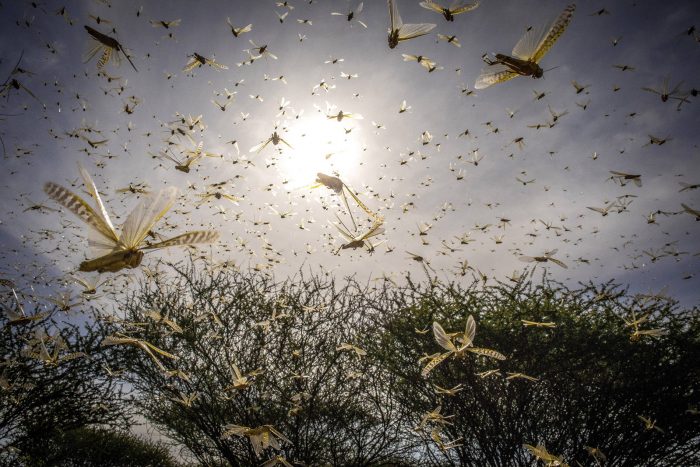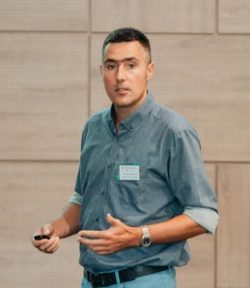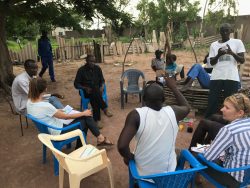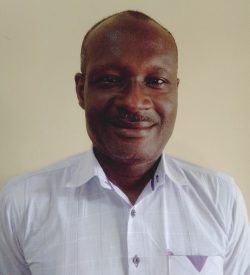On Earth Day and Every Day, RTAC Research Network Members are Driving Environmental Research
RTAC
POSTED April 22, 2020
|Agriculture and Food Security, Climate and Environmental Protection
Samantha Downey, Research Analyst, NORC at the University of Chicago

Today marks the 50th anniversary of the first celebration of Earth Day. One of the most popular secular holidays around the world, the aim of Earth Day is to build awareness of and demonstrate support for environmental protection issues around the world. USAID’s Research Technical Assistance Center’s Research Network members are leading research efforts on a variety of environmental topics, such as water and sanitation, climate change, and agriculture. Read more below about why their research is more important now than ever, and how their research can contribute to important decisions.
Water and Sanitation

Clean water is critical to the health of people and the planet. Water insecurity, meaning the lack of safe and sufficient water, is an urgent problem for millions of people globally. Dr. Amber Wutich and her work with the Household Water Insecurity Experiences – Research Coordination Network (HWISE RCN) examines community-level solutions to achieving water security in countries such as Ethiopia and Brazil where access to water is a major issue in some areas. One of the most relevant findings in her research is the widespread practice of water sharing across households (such as water gifts or exchanges).1 These water sharing arrangements are being significantly challenged by social distancing measures used to combat COVID-19, as many households work closely with others to source and reduce the dangers of fetching water. The HWISE RCN has created a novel, cross-cultural scale for measuring water insecurity that has been used in at least 23 countries around the world with engagement ranging from international organizations to local communities.2

Ensuring that water supplies are clean and free of pollutants is also important. Dr. Stevan Armaković’s research aims to provide a deeper understanding of what happens to certain pharmaceutical ingredients that pollute water sources. Pharmaceuticals are deposited in water sources around the world due to their overuse and irresponsible waste practices, and are difficult to remove using conventional treatment methods. According to Dr. Armaković, “this [has] led to the scary fact that frequently used drugs have been detected in [the] environment and tap water.” His research has the potential to help experts predict and understand how to reduce environmental pollution using innovative materials to improve water treatment results. Dr. Armaković makes the accessibility of his research to stakeholders a priority through his personal website as well as submissions of his work to journals and publication3 contests, and interviews with news networks.
Climate Change & Agriculture

Responsible stewardship of the land and environment are important for farmers and global food security. The Global Locust Initiative (GLI)’s mission is “to promote interdisciplinary locust research and management to improve the well-being of farming communities and global food system sustainability.” Locust outbreaks have plagued crop production for centuries and continue to have devastating impacts on human livelihoods and the environment, as observed this year with the desert locust outbreaks affecting extensive tracts of land throughout the Horn of Africa.4 RTAC Network members Drs. Arianne Cease and Rick Overson’s research supports two pieces of growing evidence: first, that human behavior is an important factor in recurrent locust outbreaks5, and second, that in West Africa, soil ecology is important to managing pests, including locusts.6 Findings from the GLI’s research have the potential to inform environmental policymakers on best restorative soil practices that could result in the long-term improvement of crop yields and reduction of pests. The GLI engages stakeholders across all levels, including capacity building efforts with stakeholders and hosting international and cross-sectoral workshops.

As the world’s population grows and weather patterns become less predictable, policymakers and experts recognize the need for high-yield, climate-resilient crops. Two RTAC Network members are contributing to efforts to ensure greater food security amidst these concerns. First, Dr. Magloire Oteyami’s studies on climate-smart varieties of seeds in West Africa contribute to the evidence base on the best-adapted varieties of crops to the West African climate.7 He makes his research available to different stakeholders by serving as an Onfrontiers expert and providing research-based recommendations to seed companies in Benin and to other relevant programs and activities.

In Edo state, Nigeria, Dr. Moses Nwagbara’s research on the perceived effects of climate variability on food crop agriculture demonstrates the particular effects and challenges of climate shifts on local farmers. Dr. Nwagbara and his fellow researchers found that farmers in the study area have sensed changes in temperature and rainfall patterns, which adversely affects the length of their planting seasons and their crop production.8 Dr. Nwagbara notes that these farmers have particular difficulty with adjusting to such shifts, as they lack the technology and climate services to anticipate changes that can impact their practices. His work demonstrates the need for the reduction of greenhouse gases that have been implicated in changing climate.
Earth Day is an opportunity to celebrate the planet while recognizing urgent challenges. RTAC Research Network members play an invaluable role in contributing to innovations and evidence that can help inform policy and programs.
For more resources published by RTAC related to the environmental space please refer to:
- Scaling Back Wildlife Trade in the Mekong Delta: Applying a Political Economy Lens to the Farmer Loophole with a Focus on Vietnam and Laos
- Training Manual: Using Cocoa Pod Husks to Improve Crop Yields and Soil Quality
Resources:
- Wutich, A., J. Budds, W., Jepson, L., Harris, E., Adams, A., Brewis, L., Cronk, C., DeMyers, K., Maes, T., Marley, J., Miller, A., Pearson, A., Rosinger, R., Schuster, J., Stoler, C., Staddon, P., Wiessner, C., Workman, S.L. Young. (2018) Household water sharing: A review of water gifts, exchanges, and transfers across cultures. Wiley Interdisciplinary Reviews – Water. 5(6), e1309.
- Brewis, A., Rosinger, A., Wutich, E., Adams, L., Cronk, A., Pearson, C., Workman, S. Young, & the HWISE Network. (2019) Water Sharing, Reciprocity, and Need: A Comparative Study of Interhousehold Water Transfers in Sub-Saharan Africa. Economic Anthropology. 6(2), 208-221.
- Armaković, S. J., Armaković, S., Šibul, F., Četojević-Simin, D. D., Tubić, A., & Abramović, B. F. (2020). Kinetics, mechanism and toxicity of intermediates of solar light induced photocatalytic degradation of pindolol: Experimental and computational modeling approach. Journal of Hazardous Materials, 122490.
- http://www.fao.org/news/story/en/item/1259082/icode/
- Le Gall, M., Overson, R., & Cease, A. J. (2019). A global review on locusts (Orthoptera: Acrididae) and their interactions with livestock grazing practices. Frontiers in Ecology and Evolution, 7, 263.
- Word, M. L., Hall, S. J., Robinson, B. E., Manneh, B., Beye, A., & Cease, A. J. (2019). Soil-targeted interventions could alleviate locust and grasshopper pest pressure in West Africa. Science of the Total Environment, 663, 632-643.
- Oteyami, M., Codjia, E., Agbangla, C., Ahoton, L., Santos, C., Montcho, D., & Missihoun, A. (2018). Submergence Tolerance in Irrigated and Rainfed Lowland Rice Varieties: Agro-Morphological Basis for Rice Genetic Improvement in Southern Benin. Open Access Library Journal, 5(4), 1-15.
- Nwagbara, M. O., Ozabor, F., & Obisesan, A. (2017). Perceived Effects of Climate Variability on Food Crop Agriculture in Uhunmwode Local Government Area of Edo State, Nigeria. Journal of Scientific Research and Reports, 16(3), 1-8.
